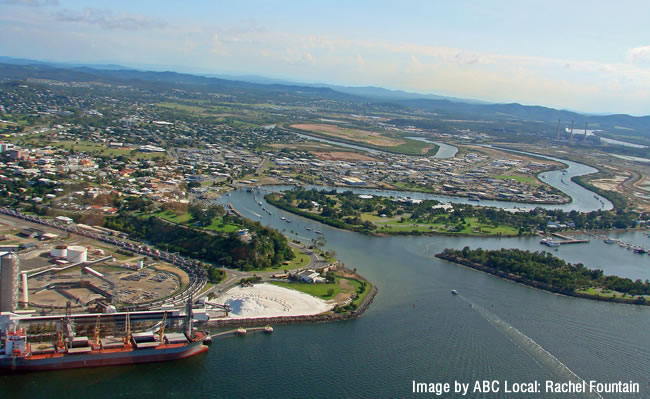Queensland - Where Australia mines
Tuesday 7 February 2012

Queensland - Where Australia mines

Resources are being mined from our region. But, it's not iron or coal that is being taken but something equally precious - skilled labour.
The economic boom in the resources sector, combined with an economic lull in our region has been too great to ignore with many workers heading to areas such as Gladstone to find lucrative employment.
Skippers and tradies in particular have been lured out of town, many with young families, but with the construction industry still suffering employment options are limited.
Steve Edmondson, operator of reef tour company Sailaway, expressed concern over the impact of the mining industry on tourism at a recent meeting with Shadow Minister for Tourism, Jann Stuckey.
"We used to be known as where Australia shines, not where Australia mines," he said.
"There's a big attraction for people to disappear from $60,000 to $160,000 whether they're working as engineers, geologists, managers.
"The key thing is that tourism is sustainable, mining isn't. The sustainable future is tourism, it regenerates itself whereas mining can only live so long."
Ms Stuckey indicated that workers living in remote mining locations are at risk of experiencing social problems.
"I speak to a lot of people, psychologists, doctors, I ask them 'how long do you think it will be before there are some severe social problems out there?'
"And there will be because you're putting people away from their families, you're separating their communities.
"The time that people last out there will be a year or two so while they're offering them the big dough now there's no guarantee that will continue."
She expressed her dismay that 42 per cent of Queensland's area is currently under mining leases, and added there are figures circulating that up to 70 per cent has been ear-marked for mining.
Pictured: Many skippers have been attracted by comparatively high salaries on offer in Gladstone.
Local tradesman, Matt Shaw, has applied to work at Century Mine in west Queensland citing a flat construction industry and a secure income as the reason for his decision.
"The obvious reason you'd be looking into it is for a more constant source of income with the building industry on its knees up here."
He said some mining companies have already reacted to some apparent social problems caused by lengthy shifts away from home.
"They're called 'family friendly' shifts because they're (one) week on (one) week off, just because there are a lot of marriages breaking down.
"Even in WA now, speaking to my mates in the resources sector over there, a lot of the mines are cutting back to two on one off or even one on one off.
"It's a catch twenty-two. On one hand you're getting financial security for your kids future, but on the other hand nobody wants to be away from their young family even if it is only for a week.
"If you're working week on week off that's still 26 weeks of the year," Mr Shaw said.
However, there are some who see the benefits of the Fly In Fly Out (FIFO) working conditions which are common in the industry.
Louise Fossilo commented on The Newsport article 'Mining jobs expo next week' (Friday, 28 October 2011) saying her family life has improved since her husband began FIFO work.
"We live in Port Douglas, my husband does FIFO to a mine in Papua New Guinea. The mine is owned by an Australian Mining Company. We moved to Port from NSW so it would be easier and quicker for my husband to get to work, also we fell in love with this place after a holiday earlier this eyar.
"He does six days home and eight days away roster. Mining is long hours regardless of FIFO, I see my husband more now than when he was working for a mine not doing FIFO. He did twelve to fourteen hour days, leaving before I got up and not home till around 7pm some nights.
"FIFO works for us. It was difficult being here without him not knowing people, but this wonderful town has welcomed us and we both feel right at home."
President of the Combined Clubs, Jennifer Hill, believes that FIFO presents opportunities for the region.
"I think the benefits of the FIFO people is that we've got a local contact to take back to the mines for people who have got disposable income to look at flying in to Port Douglas for their breaks.
"This could service the restaurant industry, the retail industry and the accommodation industry and if the Daintree Tourism Association or another promotion was taken out to target them as another spend group in the region we would probably find another sector of income for Port Douglas," she said.
Ms Hill said there are few prospects for property development in Port Douglas leaving tradespeople with little option but to look further afield for work.
"The skilled labour is all going to the mines because the mines are paying so high. Port Douglas can't compete with that.
"Unless a large convention centre was going to take place where the skilled labour may come back into the area, then there's probably very little hope for our tradespeople to stay in this area which is damaging Port Douglas immensely."
Need a tradie? Check out our Trades and Services Directory.
